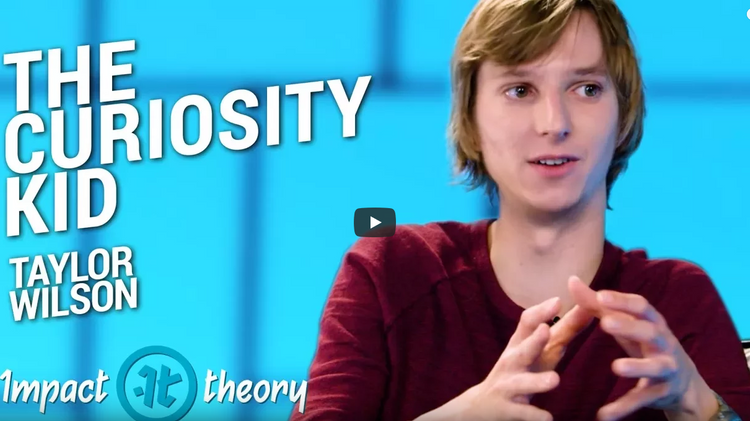Goals Aren't the Only Way

We assume that any worthy social accomplishment is best achieved by first setting it as an objective and then pursuing it together with conviction. It makes you wonder, is there such a thing as accomplishment without objectives
-Kenneth O Stanley. Why Greatness Cannot Be Planned
Read any self-help book today and a common pattern emerges. Every single one talks about setting goals or objectives. The language may vary, the systems may differ, but at the center of it lies the idea of defining how things should be in the future and devising a plan to close the gap.
This works great for engineering projects: buildings, bridges, dams, highways, but it doesn’t always make sense for life goals, especially if you're ambitious.
Here’s why.
Goals only factor in known knowns
Goals require us to imagine a desirable future state and come up with a plan to get there. In order to do this, our minds despite doing their best are limited to only using what’s already known as reference. They mostly extend known knowns.
When we imagine a future state, we typically base it on what other people have achieved. We want what they have. We want to know the formula, the secret system they used that will guarantee our success.
This desire drives a very healthy demand for books, courses and seminars that claim to have cracked the code of success. But if everyone followed these systems and could only achieve what everyone else has achieved, the world would be a boring place.
We thrive when there’s variety and the secret to variety is in the unknown and we can't get there with only goals and objectives.
Goals limit playful discovery
Remember when we played as kids? Our curiosity was insatiable. We ran around fearlessly probing, trying, failing, always learning but without any goals. When we grow up, however, we seem to lose that desire for exploration and playful discovery.
We’re adults now, we’re told, and the time for exploration, tinkering and joyful discovery is over. We're taught that we must have goals in life otherwise we'll end up being failures. So we dutifully craft future plans and focus on achieving them.
Instead of enjoying ourselves, we become like self-programmed robots, replete with procedural instructions, to-do lists and deadlines. For many this feels like a straitjacket. What's worse, they think this is the only way to achieve anything of significance.
I assure you it's not.
Goals can be hazardous to your health
Expeditions to climb Mount Everest and reach the summit are fairly common, yet in 1996 fifteen climbers lost their lives, eight of them in a 24 hour period. It’s not that people don’t die in the attempt, this was just inexplicable.
Chris Kayes—a former stockbroker turned organizational psychologist—was fascinated by the phenomenon and came up with a theory described by Oliver Burkeman in his book The Antidote: Happiness for People Who Can't Stand Positive Thinking.
The Everest climbers, Kayes suspected, had been ‘lured into destruction by their passion for goals’. His hypothesis was that the more they fixated on the endpoint – a successful summiting of the mountain – the more that goal became not just an external target but a part of their own identities, of their senses of themselves as accomplished guides or high-achieving amateurs
-Oliver Burkeman: The Antidote: Happiness for People Who Can't Stand Positive Thinking
Kayes calls this “goalodicy”, a combination of goal and theodicy, to mean the obsessive pursuit of goals to the point of self destruction. He had seen the same phenomenon all too often in world of Wall St. Once a goal becomes a part of someone's identity, it becomes impossible to let go despite mounting evidence to the contrary.
You better watch out.
Most ambitious achievements were never planned for
If we were to take a close look at the history of the world's greatest inventions, innovations or discoveries, we’d find that many of them were never planned for.
The personal computer, penicillin, the microwave oven, vulcanized rubber, electromagnetic waves, radioactive elements, X-Rays, Velcro, insulin, etc. were not a result of goals, objectives or careful planning. They were a result of curious tinkering and opportunity recognition.
Yes sometimes in the pursuit of a goal you might discover something completely different and unrelated to your pursuit, but that is not the purpose of goals. That’s still the pursuit of serendipity.
Pursuing serendipity
Pursuing serendipity will give us back our joy of discovery, learning and even ambitious achievement.
It requires first and foremost that we start with the right mindset. We must believe in nonlinear, asymmetric outcomes.
I love this quote from Venkatesh Rao on opportunism:
Suppose you have your deliberative, reactive and procedural games in order. You'll get through your weeks, quarters and even years. You'll survive. You don't need opportunism. But year after year without opportunism in your toolkit, and a scary, frightening thing will happen to your life. It will become ordinary. You'll achieve nothing remarkable. In purely decision-theoretic, Las Vegas terms, you will fail to “beat the house.” This is because the rational incentive structures of the world are designed to pay off less than the investment of rational players
-Venkatesh Rao. The Fine Art of Opportunism
In other words, if all you do is react immediately to what happens chasing problem after problem, deliberately plan everything in minute detail, or set everything up into procedural systems, you’ll be OK but your life will become ordinary.
If you’re ambitious however, you should not set goals or objectives, you should to pursue serendipity.
I’ve already written a bit on pursuing serendipity here and here, and I plan to write more about it in the future.
Until then.




